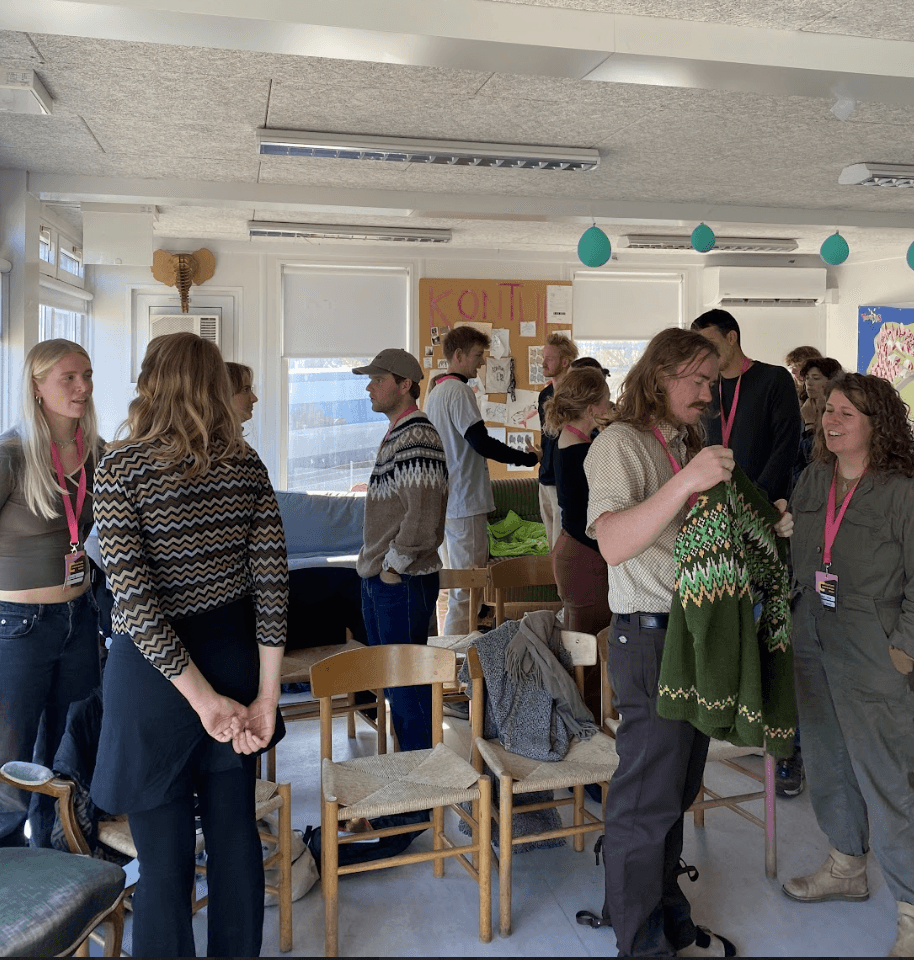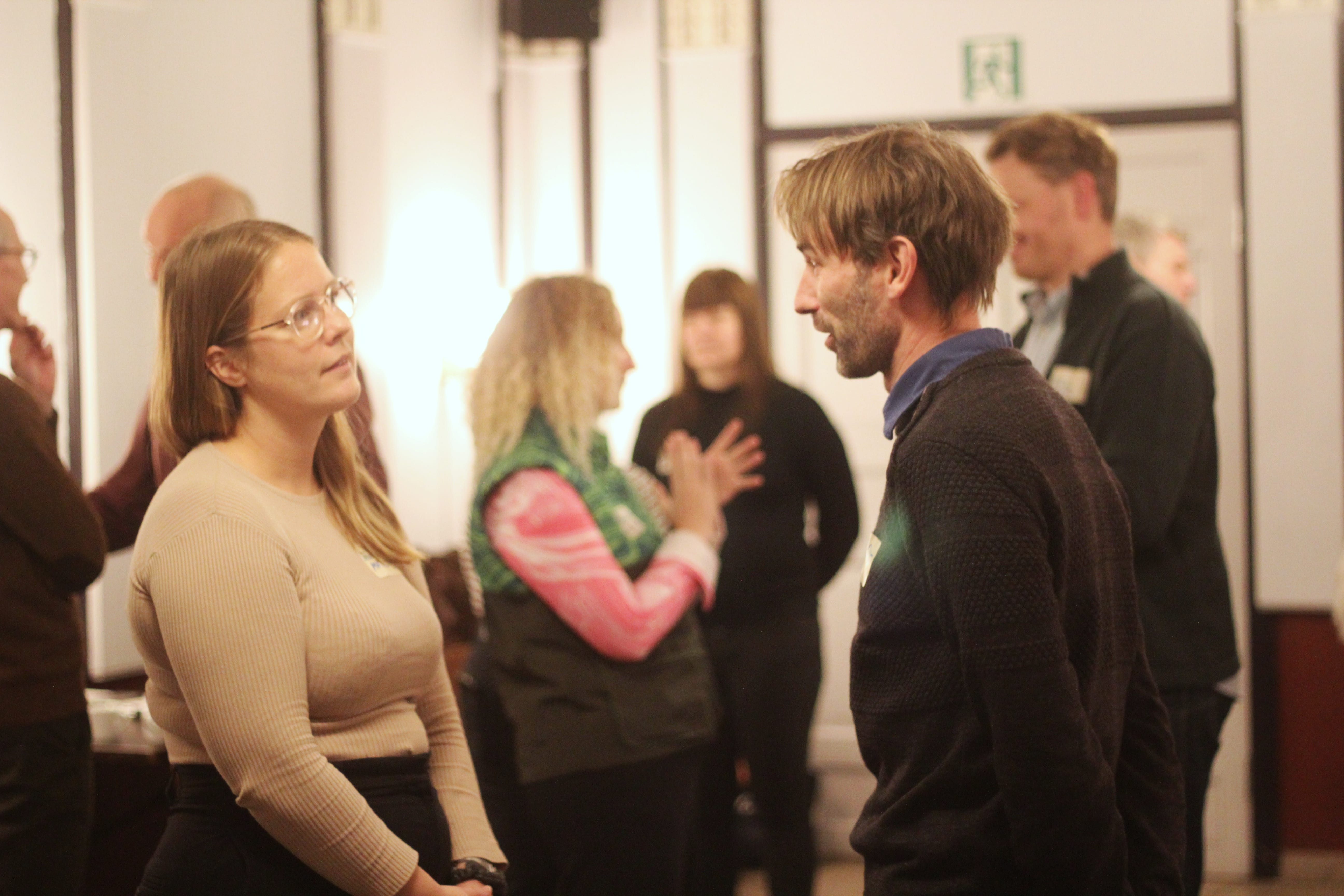NEWS
Three insights from our latest Volunteer Coordinator Workshop
We have distilled two days of inspiration and reflection into three sharp insights for you.
At our latest Volunteer Coordinator's Workshop, only coordinators from the sports world participated, and it provided a good opportunity to reflect together on common opportunities and challenges. Here we have gathered three of the important recognitions that particularly stood out in the conversations – and which may also inspire your ongoing work with volunteering.
1. Purpose first – why do we engage volunteers?
It may be tempting to think of volunteers as "extra hands" to solve a practical task. Try googling "volunteering" – you will quickly see a stream of illustrations of hands reaching up, out, or forward. They are usually colorful, but also faceless.
Although it is a widespread way to visualize volunteering, we risk overlooking what makes volunteering something special with that image.
At the workshop, it became clear how important it is to articulate why one engages volunteers and what value they bring – not only for the event itself but also for the participants, the organization, the community, and society at large. And - of course - for the volunteer themselves.
When the purpose and value are clear, it becomes easier to create a good experience, match expectations, and communicate meaningfully – both internally and towards the volunteers. And when we highlight the value – initially by articulating it – it also becomes possible to create more of it.
👉 How do you articulate the purpose of your volunteer efforts – and how do you let it shine through in your communication with the volunteers?
2. Leading in two directions – the special position of the volunteer coordinator
Volunteer coordinators often find themselves in a tension between the organization's formal hierarchy and the meaningful volunteer community.
On one hand, you are part of an organizational structure where tasks are distributed based on roles, competencies, and employment conditions – and where volunteer coordination is not always considered a core activity. Here, it is the coordinator's task not only to solve their own task but also to create a good framework for the actual work with volunteers. This requires the ability to lead upward within the organization, create understanding of the significance of volunteering, and highlight the value of the volunteers' contributions.
On the other hand, the coordinator is responsible for engaging and coordinating a group of people who stand outside the formal system. Completely different logics apply here – when it comes to motivation, responsibility, attachment, and reward. Volunteers participate out of desire and meaning – not obligation – and this places special demands on relationships, communication, and community.
The role of the volunteer coordinator thus requires the ability to navigate two parallel systems: One, where structure and responsibility are formalized – and one, where relationship and meaning are the driving force. It is a role with great potential that requires a special set of skills – and often deserves more recognition than it receives.
👉 How do you balance your role between organizational structures and the volunteers' engagement – and what could strengthen you in that position?
3. New volunteers, new opportunities – when the community starts over
At the workshop, we talked about the significant difference between coordinating volunteers you already know and accepting a completely new group of people. Many have experience with volunteer groups where trust has been built over time, knowing each other's strengths and routines – and where the tasks are familiar to both the coordinator and the volunteer.
But that picture changes when you are faced with a larger event and a group of volunteers you have never met before. They might speak another language, come with different cultural experiences – and perhaps it is their very first volunteer shift. This places greater demands on the volunteer coordinator's hospitality, instruction, and expectation management. It takes something special to make everyone feel safe and included from the very first meeting.
However, within the challenge lies an opportunity: With many new volunteers, the shared task, the individual experience, and the event itself can take center stage. The focus is on building a community anew. The dynamics here are not colored by previous conflicts, cliques, or privileges – which all established volunteer communities also encompass. It can be liberating and allow for new relationships and new roles to emerge.
👉 How do you arrange the welcoming of new volunteers so they feel included and connected with the task – even when you do not know them beforehand?
If you have questions or would like assistance with some of the points? Then you are always welcome to write to us at [email protected].




